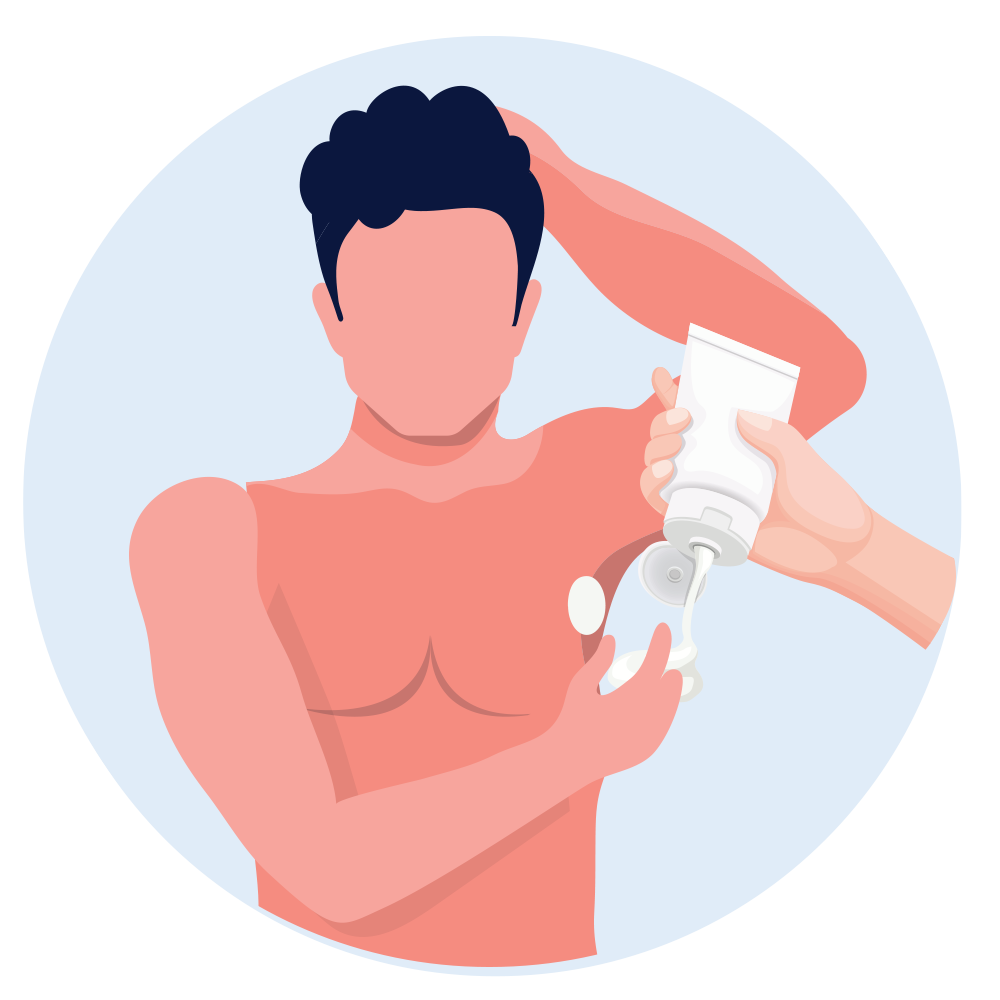Eczema Care Online is for people with eczema and families caring for a child or baby with eczema.
Eczema Care Online is for people with eczema and families caring for a child or baby with eczema.
Even if you have read a lot about eczema already, we really encourage you to have a look and see for yourself – some of the tips and information might surprise you.

This section starts off with the basics but covers much more than that. So don’t get put off by the first few sections if you have been treating your eczema for a while!
Watch this video to find out about how to use moisturisers to keep control of eczema.
Moisturising creams (sometimes called emollients) are an important part of eczema care and assist to lock in moisture in the skin barrier.
Why use moisturising creams?
Moisturising creams form a barrier over the skin to protect the skin and keep control of eczema. Click on the buttons below to find out more:
Using moisturising creams every day is the best way to protect your skin and prevent flare-ups in the future.
Moisturising creams help the skin, even when you can’t see any eczema. They help keep your skin smooth and supple so it can cope with everyday things that might cause a flare-up.
I just put it on a couple of times a day and I've noticed her skin looks a lot better and she doesn't get any bad flare-ups.
HannahClick on the boxes below to find out the answers to some common concerns about moisturising creams.
Every day! Using them even when your skin is clear will prevent flare-ups in the future. Remember to keep using them even when you have a flare-up.
People with drier skin or more severe eczema may need to use moisturising creams more often. In general the drier your skin the more often you should use a moisturising cream. Moisturising creams cannot be overused.
If you are having a flare-up, then you will also need to use flare control creams, as well as moisturising creams, to get control of the eczema.
I always make sure I have plenty of moisturising creams in the house, so I never run out.
JoshuaFind a time to use them that works for you. This could be:
Watch a video about Ruth's experience of using moisturising creams.
When she’s really itchy, she finds moisturising creams soothing. Putting them in the fridge makes them nice and cool which also really helps.
AmySome people don’t like using moisturising creams because they’ve used them in the past and didn’t see any change in their skin. Click on the boxes below to find out more about why you might not be noticing a difference:
There is a huge choice of moisturising creams available in Australia. There is no evidence that one type of moisturising cream is better for eczema than another. The key is finding one that works for you and using lots of it every day.
Your skin might change as you get older or depending on the time of year. So think about changing moisturising creams if the one you are using isn’t helping anymore.
It felt like forever to find a moisturising cream that worked for us. One we tried felt horrible on her skin. Another didn't seem to do anything. The one we use now really helps her eczema and feels cooling on her skin.
MatthewYou can discuss different moisturising creams with your pharmacist, doctor, or nurse. You can also buy moisturising creams from the pharmacist without a prescription from a doctor.
The four main types of moisturisers are: lotions, creams, gels and ointments. All types work to treat eczema but how they feel, or how quickly they sink in, can affect how well we use them.
I use an ointment on his face because it’s so dry, but put the cream on everywhere else because it’s quicker.
CharlotteThe 2 week challenge is a way you can test how well moisturising creams work by choosing a moisturising cream and using it every day for 2 weeks to see how much difference it makes to your skin. This can also help you find a cream that works for you.. It’s simple – you just need to use your moisturising creams every day! There will be a chart that you can you use to record when you use moisturising creams and how your eczema is. You can also set up reminders if you like.

These creams are used to keep control of eczema. They help to:
Most people with eczema will need to use moisturising creams every day.
Usually they need to be used at least once a day. The drier your skin is, the more often you should use a moisturising cream.
The drier your skin is, the more often you should use a moisturising cream.
Put on a thick layer. Moisturising creams cannot be overused.
Always. Use moisturising creams even when your skin is clear will prevent flare-ups in the future.
Yes. Moisturising creams are very safe. They are used by millions of people with eczema across the world. Sometimes people find they irritate or sting. You may need to find one that works for you.